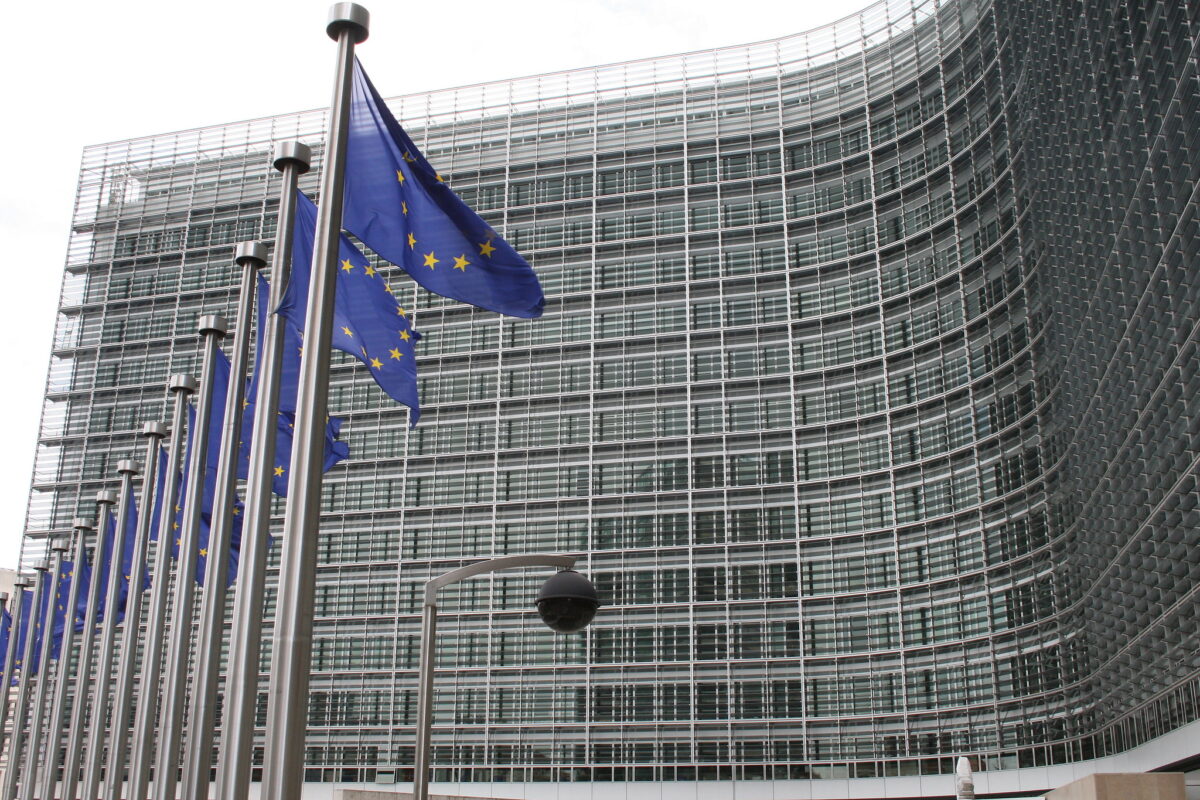The European Commission should develop and implement a legislative package to “enhance the competitiveness” of the continent’s solar manufacturing sector, the European Solar Manufacturing Council (ESMC) said in a press release this week.
The leading European PV lobby group said that this should include a “ban” on solar products made from “forced labor.”
The ESMC claims to have made the comments in response to the European Commission recently adopting a legislative package that addresses significant challenges in the wind power industry. These issues include insufficient and uncertain demand, slow and complex permits, lack of access to raw materials, the commission explained in a press release. The package includes an initiative set up to expedite projects, auction support and facilitated access to EU financing.
The Brussels-based organization is calling for a three-pronged package to “safeguard” the solar PV manufacturing industry from “existential challenges.” This is caused by “external supply pressures” and the need to meet European manufacturing targets, it said.
The package should also include “emergency measures” to prevent module producers from going bankrupt. This is because some major PV module producers are contemplating “decisive decisions” by the middle of November about the closure of production facilities or relocating their manufacturing to other regions, said the ESMC.
The first measure aims to safeguard the “off-take” of European-produced PV projects. The legislation would reserve a portion of the market for domestic products, with the ESMC estimating the target could start at 10% by 2025. The figure would be ramped up to a goal, for example, 40% or 40 GW of PV manufacturing capacity by 2040.
The second prong would ensure European supply chain “resilience”. The legislative mechanism would be established through yearly benchmarks and “mandatory” guidelines.
The final piece of the package would be the “ban” of solar PV products made with forced labor. “Leverage the existing Uyghur Forced Labor Prevention Act (UFLPA) Entity List to prohibit PV products produced with forced labour in the EU market,” the ESMC said.
“The ongoing legislative proposal in the EU goes in the right direction but even once adopted the implementation could take at least 18 months – we cannot tolerate forced labor in the EU market, and this should be prohibited without any delay.”
The US Uyghur Forced Labor Prevention Act (UFLPA) went into effect in June 2022. It prohibits imports of goods into the United States that has been manufactured with forced labor in China, especially from the Xinjiang region, the US Department of Homeland Security said on its website. Xinjiang is home to 50% of the global supply of polysilicon, which is an essential material in conventional solar modules.
In 2022, the EU Commission proposed a ban on products made with forced labor in the EU market. The commission estimates 27.6 million people are involved in forced labour across the globe. In September, the European Parliament Market and Trade Committee said it would continue working on this proposed legislation.
If it is proven that a company has used forced labor, all import and export of their related goods would be halted at the EU’s borders and companies would also have to withdraw goods that have already reached the EU market, the press release said. These items would then be “donated, recycled or destroyed.”
This content is protected by copyright and may not be reused. If you want to cooperate with us and would like to reuse some of our content, please contact: editors@pv-magazine.com.








By submitting this form you agree to pv magazine using your data for the purposes of publishing your comment.
Your personal data will only be disclosed or otherwise transmitted to third parties for the purposes of spam filtering or if this is necessary for technical maintenance of the website. Any other transfer to third parties will not take place unless this is justified on the basis of applicable data protection regulations or if pv magazine is legally obliged to do so.
You may revoke this consent at any time with effect for the future, in which case your personal data will be deleted immediately. Otherwise, your data will be deleted if pv magazine has processed your request or the purpose of data storage is fulfilled.
Further information on data privacy can be found in our Data Protection Policy.